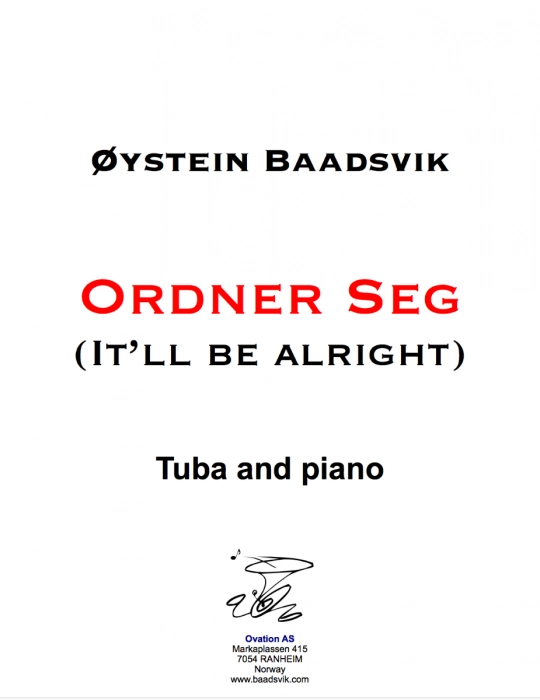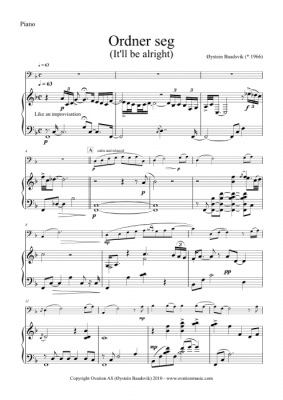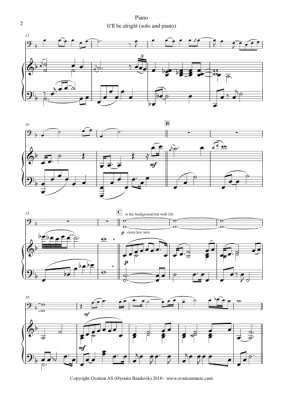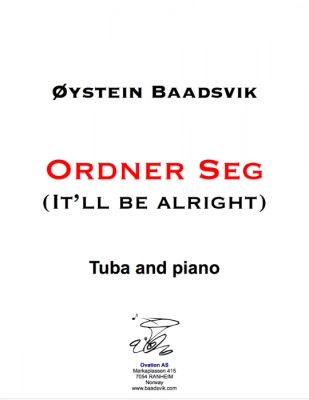Opens in a new window
Cimarron Music Press Ordner Seg (It'll be alright) - Baadsvik - Tuba/Piano

Additional Photos:


- Composer/Author: BAADSVIK, OYSTEIN
- Instrumentation: TUBA
- Model # OV0564
Composer: Oystein Baadsvik
Format: Sheet Music
Instrumentation: Tuba and Piano
Level: 2
Reviewed in ITEA journal:
Oystein Baadsvik is a familiar name in the tuba community for his performing abilities, but he frequently branches out into arranging and composing. Ordner Seg (It'll Be Alright), similar to Baadsvik's earlier work Fnugg, is rooted in his Norwegian roots. Baadsvik wrote the following about this composition: "In Trondheim, where I live, the sun is absent during large stretches of the winter. One day in February I was in my kitchen cooking as the sun shone in through the window for the first time that year. Along with the sun a simple, peaceful melody appeared - like a gift, ready to be orchestrated."
Baadsvik has taken that gift and has orchestrated it in several different versions. The original version of this piece is for tuba and piano. It is also available for euphonium and piano, trumpet and piano, and solo/strings/piano with the score and parts. The version for tuba and piano is recorded on the BIS CD-1875. Ordner Seg comes with two different solo parts. The low tuba part ranges from FF - g while the tuba part ranges from F - g1. The two different solo parts are identical beyond the octave difference. These different parts make this piece accessible to a wider range of performers. It is even possible for a performer to play portions of each part if the range gets too high.
The melody of Ordner Seg is highly lyrical. Baadsvik's description of the melody as simple and peaceful is perfectly appropriate. There is a pop-sensibility to the melody that provides a nice contrast to lyrical pieces in a more classical vein. Ordner Seg is not rhythmically difficult beyond the occasional 16th and 32nd note flourishes. This piece is audience accessible and would be a good addition to any recital program. There are a few rhythmically difficult measures and the high tuba part moves into a high range at times, but the addition of a low tuba part makes this work appropriate for a majority of tubists from high school players to professional performers. - Dr. Daniel Brown
Duration: 4:00
Media
Sound Sample
Press play to listen
Q & A
There are currently no questions for this product.
Reviews
There are currently no reviews for this product. Be the first to write one!




